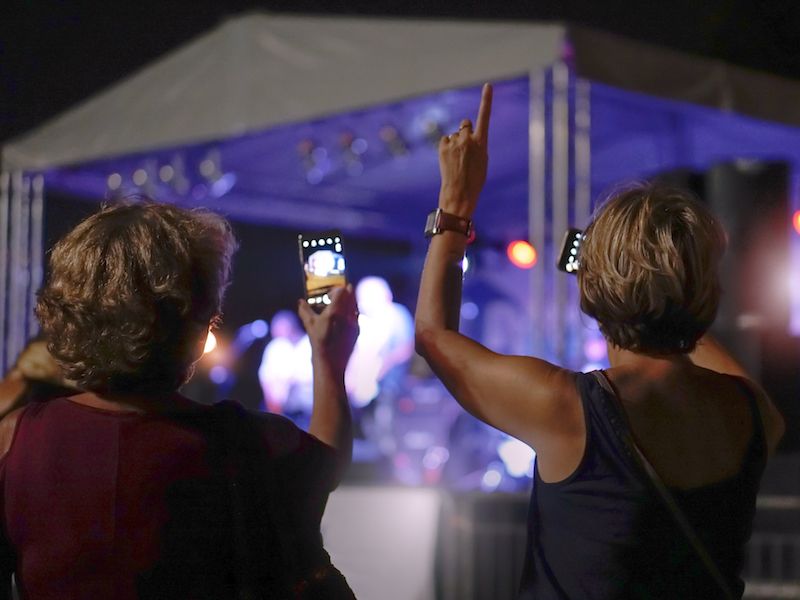
Summer has finally arrived, and it’s time for all those things we’ve been looking forward to: trips to the beach, chilling out by the swimming pool, and damaged hearing? That’s correct, summer has many hidden potential risks to your ears, either from loud sounds or the environmental scenarios you might find yourself in. Any noises above 80 decibels could result in injury to your ears, while swimming in pools or other bodies of water can cause irreversible loss of hearing. To keep your hearing safe this summer, you have to be mindful of your surroundings and take preventative measures. Here are six of the summer’s concealed hearing dangers.
When You go to Concerts, Put on Ear Protection
Whether you’re at an indoor stadium or an outside concert venue you still should wear ear protection during live music. Live music can have volumes that are over 90 decibels, even at outside shows, which is within the danger zone of hearing loss. That’s the reason it’s always a good plan to wear earplugs regardless of whether you’re seeing a concert outdoors or indoors. You can still hear the sounds with earplugs in it’s just dampened slightly. If you’re bringing young kids to a concert, think about buying them a heavy duty pair of earmuffs since their hearing is much more delicate than those of adults.
Fireworks Can Damage Your Ears
Honestly, there are a lot of reasons to avoid fireworks in the summer. This is not about the specialized 4th of July fireworks show, we mean the backyard fireworks that trigger many of injuries throughout the summertime. Backyard fireworks get to volume levels of over 155 which can damage your ears as well as causing hand injuries, loss of sight and backyard fires. This year, on the 4th of July, appreciate the show from a little further away and leave the fireworks to the pro’s.
Hearing Loss Can be Brought About by Lawnmowers
If you care about your lawn, your edger, trimmer, and mower are your best friends. But that muffled feeling in your ears is an indication that your hearing has taken damage. That’s because the lawn tools, which are constantly loud, have a slow and steady impact on your hearing. If you’ve ever observed landscapers, you probably have noticed them wearing hearing protection, next time you do yard work with loud power equipment, you should take a cue from them and use earmuffs or earplugs.
How to Safeguard Your Ears When You’re at Beaches And Pools
Huge numbers of people suffer from swimmer’s ear every summer, which happens when bacteria-laden water gets stuck in your ear canal. Swelling and painful earaches result when the bacteria infects the ear. These bacteria are usually found in rivers and lakes but sometimes also be found in hot tubs and pools if the water is not properly managed. As long as you have your ears treated by a hearing expert you should be ok, and no lasting loss of hearing will occur. To counter swimmer’s ear, however, you will want to wear specialized swimming earplugs in the pool and have your pool water analyzed to be sure the chemical balance is ok.
Boats and Other Water Sports
Summertime is a breath of freedom for those individuals who love to be in a boat on the water, taking in the fresh lake breeze or the salty air of the ocean. But, boat and jet ski engines are often noisy,they can get up to more than 100 decibels. Sustained exposure to that much noise for around 15 minutes can cause irreversible hearing impairment. In this situation also, using a set of disposable foam earplugs is a smart plan.
Car Races Can Hurt Your Ears
It doesn’t make a difference what kind of auto racing you like, motorcycle, midget, Formula 1, drag racing or stock cars. If you attend a lot of auto-races this summer, they all pose a peril. 120 dB is inside of the danger zone for hearing impairment and many races go well above this. As pointed out before, your kids should use muffs while you should wear earplugs at least. If not, you may not get to enjoy the sound of those engines in the future.